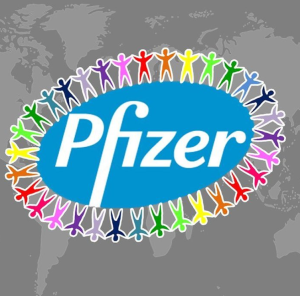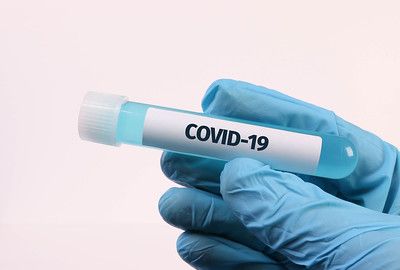In the recent weeks, there’s been breaking news about Moderna and Pfizer’s coronavirus vaccine. Each company has pushed to produce a vaccine as a way to end the pandemic.

Both companies have produced tentatively successful vaccines that use similar technologies. Moderna is an American biotechnology company located in Cambridge, Mass. The company announced that the vaccine appears to be 94.5% effective, according to preliminary data from an ongoing study. The United States has already committed about $2.5 billion to help develop Moderna’s vaccine and buy doses.
Pfizer is a research-based pharmaceutical and biomedical company located in New York City. The company announced their vaccine appears to be 90 percent effective. Pfizer did not take any money from the U.S. government to develop or test its vaccine. But Operation Warp Speed has promised Pfizer $1.95 billion to provide 100 million doses.
What’s the difference?
There are large differences that set these two companies apart like temperature, transportation and shelf-life. Both need to be stored at low temperatures with Pfizer being minus 94 Fahrenheit (minus 70 degrees Celsius) and Moderna being minus four degrees Fahrenheit (minus 20 degrees Celsius).

Pfizer’s temperature is about as cold as winter in Antarctica while Moderna’s is stable at a regular freezer or a doctor’s office. Some countries or places don’t have special freezers that could hold Pfizer’s. This could severely damage and complicate their distribution, particularly to low-income areas in hot climates.
All across Africa, Asia and Latin America an estimated 3 billion people in low-income countries are likely to lack access to a COVID-19 vaccine for years after it becomes available. The Conversation said, “the most promising vaccines require constant and extremely cold storage.” If they get too warm or too cold they spoil which means the spoiled vaccine must be thrown away.
Moderna’s vaccine starts off frozen (minus 20 degrees Celsius) for up to six months. It can be thawed while kept in the refrigerator for 30 days and then last 12 hours at room temperature. Pfizer says its vaccine needs to be kept at minus 70 degrees Celsius and can last in a specialty freezer for up to six months. The vials can be refreshed with dry ice every five days for up to 15 days to keep the vaccine at the right frozen temperature.
Thoughts on these new findings?
“We’ve never seen anything like this before,” Frank X. Powers, managing partner of Elevate Healthcare, said. “Typically, vaccine development takes years, even decades in some cases.” Powers has been in the pharmaceutical industry for over 20 years watching history being made.
“The previous record for developing and gaining approval for an entirely new vaccine was four years,” Powers said. “In the current environment, four years would have been more time than the public or the economy could tolerate social-distancing orders and restrictions.”
Therese Heimbold, a commercial director for Galen US pharmaceutical company, said, “With the data as originally reported, both are outstanding, with a rate of effectiveness far above other vaccines.” Heimbold has been in the pharmaceutical industry for about 25 years.

She explained that officials like Dr. Anthony S. Fauci, the top infectious disease expert on the current administration’s coronavirus task force, originally estimated a vaccine could arrive in at least 12 to 18 months. “It’s happening in less than that,” Hembold said. “That is amazing speed.”
“Moderna’s vaccine doesn’t need to be kept as cold,” Carrie Grabowicz, adjunct biology professor, said. “Many hospitals and doctor’s offices already have the capability to keep this vaccine at the temperature needed.” She thinks Pfizer’s vaccine causes some logistical problems when it comes to impoverished places and countries. There are locations that don’t have the current capability to keep vaccines cold enough.
Additionally, Dr. William Schaffner, an infectious disease expert at Vanderbilt University, said the relative ease of handling the Moderna vaccine would give it a big advantage.


